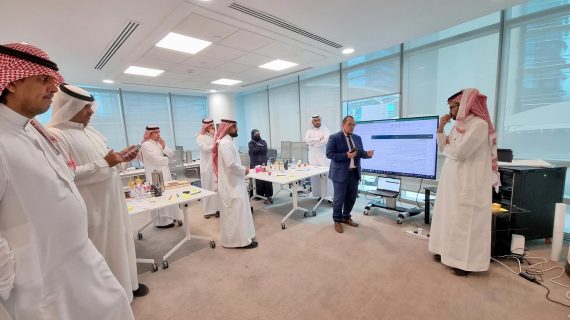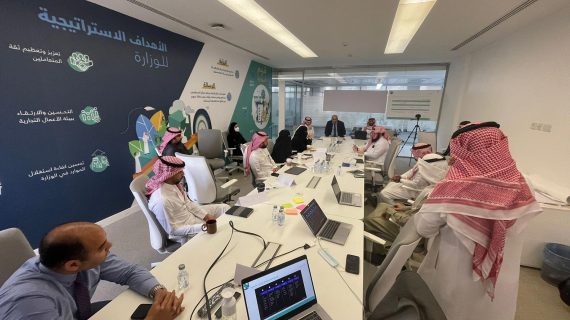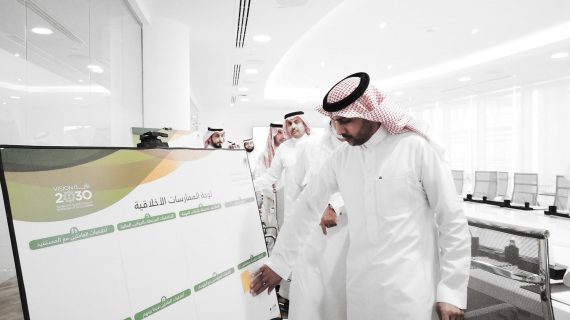...
Established 1990
+966112495943
Email: info@arrowad.sa
Arrowad International Group
P.O.Box 90987, Uthman Ibn Affan, AtTaawn, Riyadh 11623, KSA
Empowering Values
Studies, research, and papers interested in values have addressed the topic of promoting, instilling, acquiring, or adopting values in a diverse theoretical manner, while all of them emphasize the importance of values, they generally have not provided practical tools for promoting, acquiring, or explaining how to achieve what is necessary, except within a narrow scope, there have been limited contributions adopted by some researchers and institutions, representing a commendable effort that has contributed to translating ideas from theoretical realms into practical application.
23 Dhu al-Qa'dah 1444, corresponding to June 12th, 2023.
Series of Articles on Values (Article Four: Foundational Values Key Issues)
We have compiled some of these studies, programs, projects, and tools, and benefited from them, and the majority of them see the process of instilling or acquiring values occurring along three axes: first: family upbringing, second: emulating a role model and imitating them, and third: direct reception through education or training (Tilman, 2006; Al-Khadar, 2006; Yaljan, 2012; Encyclopedia of Ethics, King Saud University; University Values Project, Taibah University, 2013; Al-Daghlah, 2013; Al-Jallad, 2014; Mardad, 2015; Al-Azmi, 2015; Kozis, James, 2016). While we fully agree with all of that, but we did not delve into theory or focus solely on the process of acquiring values, instead, we endeavored to build a practical methodology and tools aimed at a more comprehensive process that we named: Enabling Values.
Empowerment is a term that refers to a collaborative process between the enabler and the one to be enabled, which means involving individuals responsible for the influences in the impact processes they undertake to instill or acquire values through a set of measures taken by the influencers or those under their jurisdiction; this is to empower values in individuals by initiating cultural change processes, considering the diversity of values, their concepts, types, and hierarchy from one institution to another, this leads to variations in the methods of empowering values. Additionally, the results of studying the reality of values in each environment and identifying its gaps guide the selection of appropriate programs for cultural change processes to empower values, carried out based on a methodology involving five processes: preparing the environment, sharing knowledge, learning, training, and modeling.
Empowerment is a term that refers to a collaborative process between the enabler and the one to be enabled
Empowering employees with institutional values is the ultimate goal of our methodology, for when employees adopt the values of their institutions in their daily professional behavior, it is likely that an organizational culture based on these values will prevail, and the institution will likely achieve its strategic goals and realize its vision. We will explain these five processes in the following pages.
The First Process: Environment Preparation
One of the leaders complained to me that most employees do not present innovative ideas and solutions to the challenges facing the institution. Although one of our institution's values is innovation, I asked him if they have created a nurturing environment for innovation and support for that value.
He replied, 'Yes, we encourage employees to innovate, and we implement their good suggestions.' I responded that it is natural for the institution to act on good ideas that surface. However, does the institution have systems, procedures, policies, programs, and financial and moral support for the value of innovation that motivates employees to produce innovative ideas and creative solutions?
It is unjust to demand individuals belonging to environments to embody values and manifest them in their behaviors and practices without providing a nurturing environment for them. The environment plays a significant role in empowering individuals with values, it encompasses specifications, characteristics, policies, mechanisms, procedures, and systems to enable values, whether materially or morally, and all these aspects should be tailored to the nature of the employees in the institution, aiding in the acquisition of values specific to the environment, not general requirements.
Regarding the complaint of the leader about the lack of interest from employees in his institution in adopting the value of innovation, it turned out that they are not the cause but rather the reason is the absence of a supportive and nurturing environment for innovation. I'll summarize for you the experience of Saudi Aramco in empowering the value of innovation: When the Board of Directors of Saudi Aramco focused on innovation, it turned into creating a nurturing environment for innovation, they allocated a financial budget of $500 million to the Venture Capital Fund, and so the participation of employees in innovative ideas and projects increased from 20% in 2018 to more than 60% in 2020, and Aramco obtained 683 global patents and recorded 1,183 applications in 2020 (Al-Qahtani 2023).
It is unjust to demand individuals belonging to environments to embody values and manifest them in their behaviors and practices without providing a nurturing environment for them
The Second Process: Spreading the Culture of Values
We applied a self-assessment scale to measure the values-based organizational culture in written and verbal form to some employees in institutions, and the results were extremely shocking, and the summary of the measurements indicates that most employees do not fully know the value system of their institution, and few of them were able to mention it, which means that the management responsible for the institution's values, whether it's the strategy, human resources, or internal communication, has not fulfilled its duty in sharing knowledge about the value system with employees, let alone other cultural change processes. The process of spreading the culture of values and sharing knowledge refers to the efforts made by those responsible for empowering values in the institution to disseminate the culture and enhance awareness and interest in values in general, and the institution's value system in particular. This ensures that employees are aware and knowledgeable about their institution's values, raising the level of interest, knowledge, and understanding, which are the three components of the state of awareness.
Most employees do not fully understand the value system of their
institution
The process of knowledge sharing operates on two main tracks:
- First: Disseminating the culture and sharing knowledge about the importance of values in general, emphasizing the need for everyone in various roles to care about them, and highlighting the significant benefits and positive returns associated with values.
- Second: Focused knowledge sharing within the institutional value system itself. This involves explaining and clarifying its components, the risks of not adhering to it, its diverse benefits, and the positive impacts on the individuals, the workforce, the institution, and the community. Knowledge-sharing operations may be directed towards specific target groups or encompass all employees, extending to all those connected to the institution, including suppliers, partners, and, in some cases, the families of employees and the local community.
All of this is achieved through the production of a set of educational, informational, and awareness programs, tools, activities, and practices within a purposeful awareness framework, tailored to the nature of the workforce and formulated with creative methods that go beyond traditional approaches, aligning with the interests of the target audience, to bring about cultural change by raising awareness about values among employees.
Empowerment programs for values should align with the nature and interests of the employees in the organization
I suggest, dear reader, that you conduct a podcast interview for your organization, where the guest discusses their experiences and expertise regarding the values of the institution, and broadcasting this podcast among the employees is likely to have a direct positive impact on their professional behavior, bring about a clear cultural change, and enable the organization to open the way for its employees to innovate various activities and programs to share knowledge about the institution's values and their personal experiences with them.
The Third Process: Education
Educational institutions bear a significant responsibility for empowering values, following the family, by playing a crucial role in shaping the cognitive structure of students, and so the role of teachers and the curriculum is of utmost importance in educational situations that directly or indirectly empower values.
However, education is not exclusive to educational institutions; it can also be carried out by other governmental, private, and non-profit organizations to empower values, where those involved in such institutions initiate the cultural change process through educational programs, curriculum development, activities, reading sessions, discussions, dialogues, and lectures about the institution's values, in line with the experiences and qualifications of the employees, aiming to enrich their knowledge and solidify their beliefs regarding the institution's values.
We will later address the fourth process, which is purposeful training aimed at transferring skills and acquiring practical practices. Some may argue that this is sufficient instead of education, but this is not accurate, for education is a process aimed at imparting information and solidifying knowledge, which forms the basis for practical skills. The focal point around which the learning process revolves is reading, which has been somewhat lost amidst the characteristics of the modern era filled with direct, simple means of reception through social media, and so if an institution can invest in the education process in an engaging and attractive manner, it will bring about significant cognitive change in its employees, influencing their professional behavior.
In a national study on reading and the knowledge society in Saudi society conducted by Ithra'a Center at Saudi Aramco, it addressed the attitudes, preferences, methods, and tools through which individuals build their knowledge, and the study revealed that reading is an important source for most of the society to acquire knowledge. (Reference: "Reading and the Knowledge Society: Reading Trends and Patterns in Saudi Society," Ithra'a Center, 2014.)
The Fourth Process: Training
The aim of training is to impart practical skills and applied performance, distinguishing it from the education process, which focuses on imparting knowledge and concepts.
If the institution has invested in the educational process, it would be beneficial to complement it with practical training, bridging the gap between education and training can be achieved by integrating knowledge acquisition with training programs, and this implies that the developers of the institution's training programs must be aware of the other processes and programs the institution undertakes to empower its employees with its values.
Training is focused on acquiring skills and practical applied performance, distinguishing it from the education process that aims to impart knowledge and concepts
Training for Empowering Employees with Institutional Values has Two Main Types:
- The First Type: Training those in charge of enabling the organization's values, who are entrusted with the responsibility of managing values, whether they are from the management tasked with empowering employees with the organization's values or influential individuals in the organization who are respected and appreciated by their colleagues, or those directly assigned to be ambassadors for the values in different departments of the organization. This type of training is preferably extensive and deep because it aims to equip trainees with skills to comply with the organization's values and transfer these skills to their colleagues. The goal is to transform the organization's values into practical practices, and it is more profound than trainer-of-trainers (TOT) programs.
- The Second Type: Training for all employees on the organization's values, aimed at equipping them with the essential skills that enable them to transform their organization's values from slogans they chant into practical practices and professional behavior. Training is a key component that organizations require for empowering their workforce, and it is undoubtedly a crucial pillar in bringing about cultural change in the organization's values system. However, it is beneficial not to think of it as the only or even the most important aspect. Instead, all the processes and models we have discussed earlier (environmental preparation, knowledge sharing, education) and the modeling we are about to address are important processes that complement each other.
Training in the field of values can be categorized into two types. The first type is training for those responsible for enabling the organization's values. The second type is training for all employees on the organization's values
The Fifth Process: Modeling
Almost every managerial or educational book talks about role models and inspirational leadership and their role in instilling, imparting, and reinforcing values in environments nurtured by leaders, and many studies and scientific research emphasize the significant impact; a leader's attention to values in their environment, or as some studies call it, "values-based leadership." (refrences)
Leaders adopting the values they advocate and presenting themselves as inspirational role models to those under their leadership contribute to empowering values in individuals who align themselves under leaders, despite their different types and levels, and are influenced by them. The challenge is not to convince the leader that they are a model but rather for the leader to understand how to be an inspiring model and motivate the workers under their management to embody the organizational values.
The leaders adopting the values they advocate and appearing as inspiring role models to those under their leadership contribute to empowering values among the employees
Empowerment Processes and the Embodiment Pillar
The cultural change processes for empowering values, as discussed earlier, are well known to everyone involved in cultural change and value empowerment. However, there is a significant difference between implementing these processes in a traditional and stereotypical manner and implementing them scientifically, with creative methods and authentic content that brings about cultural change in the organization's environment and among its employees, and since values, as mentioned earlier, are abstract concepts, it is not possible to build empowerment content and tools based solely on these abstract concepts or rely on the personal understanding of content developers. There are no scientific studies or theoretical books, as far as we know, that provide detailed insights into organizational values, including well-known and commonly used values such as innovation, integrity, transparency, and excellence, etc...
Therefore, we developed a Values Embodiment Guide, based on which we created the Encyclopedia of Pioneers for Values, this encyclopedia comprises more than a hundred scientific books embodying a hundred globally common values, and each book serves as an authentic reference framework for a single value, acting as a knowledge repository for researchers and those involved in building and developing cultural change programs and tools. The knowledge-sharing professional draws from it to disseminate cultural messages, while the developer of training and educational programs derives the scientific content for their initiatives.

Dr.Sa’ad Ibrahim
AL-Khalaf
Founding Partner & VP, Arrowad Group,







